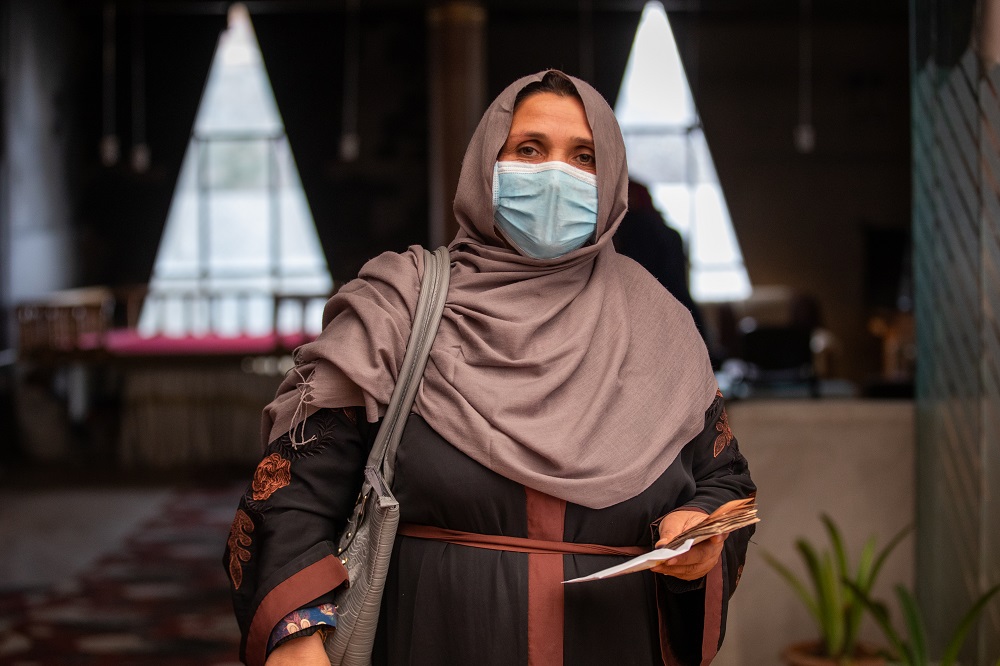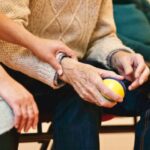Photo Credit: IRC/KRyan
Ramadan Mubarak! Muslims observing the Holy Month—beginning the evening of April 1 and ending the evening of May 1—are eager to spend their nights breaking fast, reciting the Quran, praying nightly in congregation (for “taraweeh” and “qiyam al lail”), and connecting to their spirituality. Another facet of this special time for the global Muslim community is the importance of connection, gathering, and loved ones.
Continue reading to discover how you can promote better public health to clients, so they can more safely enjoy Ramadan. Plus, you’ll find helpful new resources—including customizable Ramadan calendars—from the National Resource Center for Refugees, Immigrants, and Migrants (NRC-RIM) and the International Rescue Committee (IRC).
The State of Public Health This Ramadan
The COVID-19 pandemic reshaped the way Muslims celebrated Ramadan, with many remaining in their homes and away from their loved ones and mosques in 2020, slowly emerging the following Ramadan as vaccines became more accessible to the general public.
This year’s Ramadan looks noticeably different. As of March 24, 2022, 65% of those in the U.S. are fully vaccinated. In March 2022, COVID-19 cases, deaths, and hospitalizations are decreasing, according to the most recent data from the Centers for Disease Control and Prevention (CDC). These numbers offer promising hope to the Muslim community for returning to the mosque and resuming worship in congregation. However, if there’s anything breakthrough infections, variants, and this pandemic have collectively taught us, it’s that so much can rapidly change.
Why Vaccine and Booster Promotion Remains Imperative During Ramadan
Vaccine and booster doses remain our greatest protection against the unknown. Preventative measures, including practicing safe social distancing and wearing protective face masks, are also vital practices to keep in mind during Ramadan gatherings and group prayers.
We may understandably look to decreases in cases and hospitalizations as respites from focusing on COVID-19. However, we should take advantage of slowdowns to step up efforts toward COVID-19 mitigation to clients so that they’re more prepared and protected before new variants of concern or rising cases emerge.
Ready-to-Use Ramadan Materials
NRC-RIM has worked with the IRC to develop client-facing materials for Ramadan 2022. Additionally, NRC-RIM has existing materials on vaccines, boosters, and preventative measures to share with clients.
Ramadan Calendars: Calendars are culturally and religiously significant to many Muslims. You can download and share these Ramadan-themed calendars in English, Dari, Pashto, Arabic, and Tigrinya. These calendars are customizable so that you or clients can add “iftar” (fast breaking times) and “sehar/suhoor” (onset of fasting) times corresponding to client locations. You can share these resources digitally or print to share in person.
Vaccines and Ramadan NRC-RIM Health Page: Find many of the Ramadan resources you need, all in one place! The NRC-RIM Ramadan 2022 page includes key messages relating to COVID-19 mitigation during Ramadan, calendars, videos from Muslim community leaders, partnership ideas, and social media graphics.
Get the Facts Campaign Materials: This NRC-RIM campaign centralizes CDC guidance on the COVID-19 vaccine and booster doses and preventative measures, including wearing a mask and getting tested, in digestible and fact-based social media graphics, fact sheets, and audio and video PSAs.
Conversation Guides: While these conversation guides are not client-facing, they are informative and up-to-date talking points staff and community members engaging with clients can review. These guides help prepare for questions and concerns clients may have on various subjects, including boosters and vaccines for children.
Looking to learn more? Visit NRCRIM.org for COVID-19 health education, toolkits, and resources that center the needs of refugees, immigrants, and migrants. If you need a resource but don’t see it, or your agency needs technical assistance on engaging with clients around COVID-19 and the vaccine, contact the NRC-RIM team at nrcrim@umn.edu.










